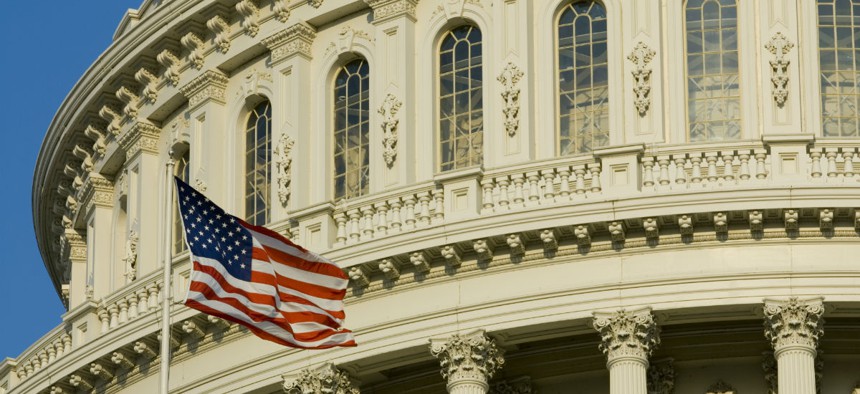
Shutterstock.com
Senate, White House Must Resolve Stalemate That Has Disabled Federal Employee Grievance Board
More than 2,000 work-related appeals have gone unanswered, undermining merit principles and agency performance.
The Merit Systems Protection Board is a small agency with a critical task: protecting the nonpartisan nature of the federal career civil service. For the first time in its 40-year history, the board, as of March 1, has no Senate-confirmed board members. The cause? The Senate for years has been unable to approve board nominees.
This is chilling news for American taxpayers and anyone who wants the federal government to avoid returning to the 19th century spoils system that resulted in epic scandals like the Union Pacific Railroad bankruptcy, manipulation of the gold market and the Whiskey Ring scandal of the Grant presidency.
MSPB is the guardian of the merit system principles that are the bedrock of the federal civilian civil service. These principles hold that hiring decisions, promotions, disciplinary actions and firings are based on the qualifications and performance of the individual employee. The principles do not tolerate cronyism, retributions based on whistleblowing or other forms of discrimination.
The lack of a single board member compounds an already unacceptable problem. The MSPB has been operating since early 2017 under unprecedented circumstances: the absence of a voting quorum.
The result has been a backlog of nearly 2,000 cases and a delay in justice of up to three years for federal employees, whistleblowers, veterans and federal annuitants with matters before the board. And undoubtedly it also means that agencies, which ultimately would prevail before MSPB, are having to keep problematic employees on the payroll until a quorum is restored and the board can vote on cases.
Moreover, due to the lack of a quorum, the board has been unable to issue official reports or studies to Congress and the president during a critical time in which there is a growing appreciation for the imperative of modernizing the civil service. The recent 35-day partial government shutdown demonstrated to everyone the need for an effective and efficient civil service and the MSPB, through its official reports, provides agencies with key data needed to maintain the productivity of their workforces.
The stoppage of MSPB’s independent, quasi-judicial role will have a catastrophic long-term impact on the merit-based system for the approximately 2 million member federal civil service as well as the agencies that employ them.
Two MSPB nominations submitted by the President Trump were recently reported favorably by the Senate Committee on Homeland Security and Governmental Affairs, but the gridlock that characterizes the modern-day confirmation process leaves their fate unclear. Also, with the recent withdrawal of another MSPB nominee, the president has the opportunity to put forth a third nomination for the board.
We call upon the Congress and administration to expeditiously return MSPB to its role as protector of the civil service merit system by prioritizing the nomination and confirmation processes to ensure that MSPB can fully function. Federal employees and the American taxpayer deserve nothing less.
Bill Valdez is the president of the Senior Executives Association, a nonprofit professional association for federal career leaders that promotes ethical and dynamic public service. Max Stier is the president and CEO of the Partnership for Public Service, a nonpartisan, nonprofit organization that seeks to transform how the government works. Terry Gerton is the president and CEO of the National Academy of Public Administration, a congressionally chartered, non-partisan, non-profit academy that improves governance and advances the field of public administration. Thomas W. Ross is the president of The Volcker Alliance, a nonpartisan organization that advances effective management of government to achieve results that matter to citizens.






